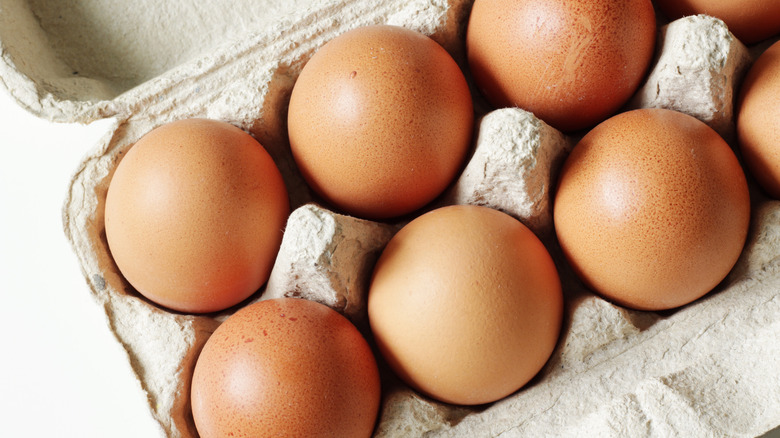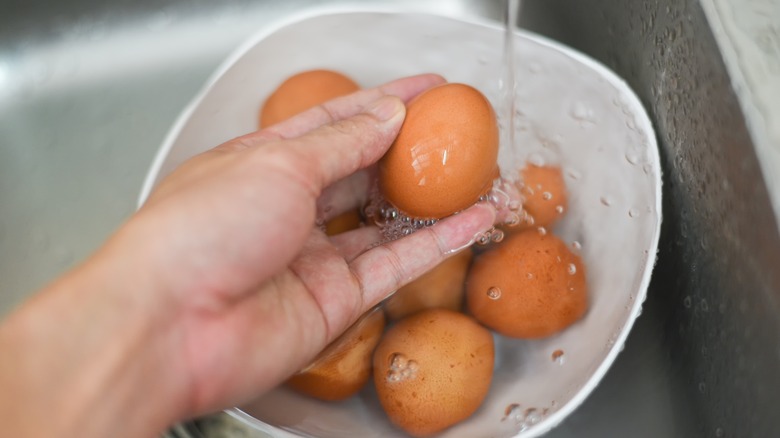Why You Should Never Wash Eggs
Along with olive oil, vinegar, salt and other seasonings, most people would probably name eggs as a number one kitchen staple. Behind soft drinks, milk, and chips — eggs are the fourth most-commonly bought supermarket item, according to BusinessNES, with the average number of eggs eaten per American in 2021 a whopping 288 (via Statista). And it's no wonder, with the tasty staple taking a starring role in so many breakfast dishes, as well as making its way into a plethora of baked goods and desserts.
Considering how much most of us love eggs, they most likely make their way into our shopping cart pretty often — even when we're traveling. You may have noticed, when buying eggs in other countries that while eggs are stocked in the supermarket's refrigerator case in the U.S., in many other countries they're simply sold at room temperature. According to Forbes, that's because in America, egg manufacturers wash the eggs in order to minimize salmonella bacteria, while in other parts of the world companies will vaccinate the hens against the bacteria, instead, as a different way to address the same issue. So, if American egg companies wash their eggs, why shouldn't you?
Washing eggs removes their protective cuticle
As explained by Forbes, American egg farms wash their eggs before sending them to market, in order to minimize any migration of salmonella bacteria present on the outside of the egg. The article notes that the washing process removes the egg's natural barrier protection, called a "cuticle," which helps keep the inside of the egg free from bacteria. Therefore, during shipment and in grocery stores, the eggs must then be refrigerated so that any bacteria the eggs come in contact with post-washing doesn't have a chance to invade the egg.
So, let's say you hit up a nearby farm or farmers market for some freshly laid eggs, and they haven't been washed. According to Successful Farming, that's exactly how they should remain until you are ready to eat them. The eggs' cuticles will keep their interiors safe from any bacterial invasion, at room temperature, for a couple of weeks. When you're ready to eat the egg, all you have to do is rinse it in warm water and you're good to go. If you do wash them ahead of time, you will remove the protection of the cuticle and risk the exterior bacteria migrating inside, so at that point you should let the eggs dry and then refrigerate them to slow any bacterial growth.

